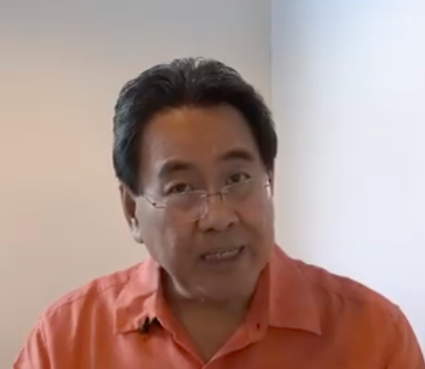Lawmaker objects to probe of Octa Research qualifications

Cagayan de Oro Rep. Rufus Rodriguez. Image from his Facebook page
A senior lawmaker from Mindanao is objecting to the congressional probe of OCTA Research’s qualifications and research methodologies, even as he counted the research and consultation firm as among the pandemic’s heroes.
House Deputy Speaker and Cagayan de Oro Rep. Rufus Rodriguez described the OCTA researchers as “very qualified” and their findings “accurate and supported by data.”
“I am opposing their resolution seeking the investigation of OCTA. Instead of being investigated, this group should be supported, encouraged and requested to continue with their good work and the big help it is giving to our country in fighting this crippling health crisis,” he said.
Rodriguez said he would formally manifest his motion when the House good government panel conducts a hearing on House Resolution No. 2075 filed by Representatives Bernadette Herrera, Kristine Singson-Meehan, Sharon Garin, Stella Luz Quimbo and Jesus Suntay.
A distraction
“It will just distract OCTA from its work. It will not contribute to our collective effort to fight the rampaging new coronavirus and its highly infectious variants,” Rodriguez said.
Article continues after this advertisementEarlier, the five lawmakers crossed party lines to seek an investigation of OCTA Research’s “qualifications, research methodologies, partnerships and composition.”
Article continues after this advertisementA group composed of faculty members and alumni of the University of the Philippines, OCTA Research analyzes COVID-19 case trends and publishes its regular recommendations.
Timely warning
Last year, Malacañang told OCTA Research to stop publicizing its recommendations and to relay its suggestions to the Inter-Agency Task Force for the Management of Emerging Infectious Diseases (IATF), but privately.
Rodriguez, however, saw the benefit of the group’s analysis and recommendations.
He recalled how OCTA Research warned that COVID-19 cases were increasing in areas outside Metro Manila, including Cagayan de Oro City, where there was a 75-percent spike in infections.
Rodriguez said the warning prompted him and local officials to call for more vaccines and other forms of assistance to help control the surge in cases.
Twelve days later, OCTA Research reported anew that the city was still a high-risk area due to an increase in COVID-19 cases.
Rodriguez said his letters to the IATF asking for more vaccines and health response led to President Duterte ordering the recalibration of distribution of vaccines to critical areas like his city.
Later on, the Department of Health reported that five of 11 local Delta variant-infected persons were from Cagayan de Oro City and one from Misamis Oriental.